The Supreme Court today stayed a Patna High Court order setting aside the election of BJP MP Chhedi Paswan and said it would examine whether politicians need to mandatorily declare every offence or only the heinous crimes registered against them at the time of nomination.
The court made the observation as it stayed the High Court order setting aside the election of Paswan, the Lok Sabha MP from Sasaram (reserved) constituency in Bihar, for “suppressing” details of criminal cases pending against him.
Paswan had defeated then Lok Sabha Speaker Meira Kumar in the 2014 general elections.
“We have to go in depth. It’s a serious issue. We have to see whether every offence or only serious offences are covered under the earlier judgement of the court,” a bench of Justices Ranjan Gogoi and P C Pant said while admitting the case.
Senior advocate Harish Salve appearing for Paswan said he had three cases against him, of which two cases have punishments of six months while the third one was for blocking of traffic in a protest.
He said that non-disclosure of such offences cannot be said to be amounting to “corrupt practices”.
Senior advocate C S Vaidyanathan appearing for one Ganga Mishra said Paswan has declared the offence in his 2010 poll affidavit but did not do so in the 2014 general elections.
He said that as per earlier judgement of the apex court, every individual contesting the election has to mandatorily declare all offences.
“The question here is that criminal cases are lodged against a politician for blocking the road in protest in which a chargesheet has been filed but charges are not framed. Can this suppression of facts by a politician during nomination deprived voters to make an informed choice,” the bench asked.
“Does this non-disclosure of criminal antecedents on part of a candidate amount to exercise of ‘undue influence’ and does this concealment or suppression deprive the voters to make an informed and advised choice,” the bench said while posting the matter for listing in January.
The apex court had on February 5 last year held that the election of a candidate, who has concealed his or her criminal antecedents during nomination process, should be declared null and void.
After 51 days, curfew was today lifted from Kashmir, except for few police station areas, but normal life continued to be hit by the strike called by separatists.
Clashes were reported from a number of places in Srinagar city and parts of Budgam district but nobody was hurt in these incidents, police said.
“Curfew has been lifted from Kashmir except from Pulwama town and the areas in Srinagar falling under the jurisdiction of police stations M R Gunj and Nowhatta,” police said.
The curbs were lifted following improvement in the situation, a police official said.
“However, the security forces will remain deployed in strength in sensitive areas of the Valley to maintain law and order,” the official said.
Curfew was clamped in entire Valley on July 9 following violence in the aftermath of Wani’s killing in an encounter in south Kashmir’s Anantnag district a day earlier. The violence has left 68 people, including two cops, dead and several thousand injured.
While public transport continued to be off roads, there was increased movement of private cars and auto-rickshaw.
However, schools, colleges and other educational institutions and shops remained closed due to the strike called by separatists groups.
The attendance in government offices also showed upward trend with majority of employees reporting for work. The banks were also open and witnessed massive rush of customers as soon as they opened.
Mobile internet continued to remain suspended in the entire Valley, where the outgoing facility on prepaid mobiles remained barred.
During the day, groups of miscreants pelted stones on security forces at Chattabal, Kani Kadal, Khanyar and Batamaloo areas of Srinagar, the police official said.
The security forces used tear gas to chase the protestors but no one was hurt in these incidents, the official said.
He said reports of clashes between stone-pelters and security forces were also received from Chadoora, Kremshora and Mazhama areas of Budgam district.
The separatist camp, which is spearheading the agitation in the Valley over the civilian killings during the protests against Wani’s killing, has extended the strike call in the Valley till September 1.
Launching a fresh attack on the LG and the Centre, Arvind Kejriwal today charged that Prime Minister Narendra Modi wants to reverse numerous decisions of the AAP government through Najeeb Jung and remove DCW chief Swati Maliwal who, he claimed, will be “arrested” soon.
Kejriwal’s outburst on microblogging site Twitter came a day after Jung said that he was in the process of overturning and rectifying “illegal decisions” taken by the AAP government following the August 4 Delhi High Court verdict.
Kejriwal claimed the Lt Governor and the Centre wanted to “reverse” numerous decisions of public importance, including the decision to increase minimum wages and holding discoms accountable for unscheduled outages, among other measures.
He said Najeeb Jung was “subverting” democracy to protect his “chair”.
On the CAG row, the Delhi Chief Minister said the auditor “vehemently refuses” to audit advertisement expenses of centre and other states.
“Why? CAG under pressure from BJP?,” he questioned.
“Sources- LG n PMO hell bent on removing Swati Maliwal 4 doing gud job. She’ll be arrested coming week n then removed,” he claimed in a tweet.
“LG hell bent on removing the team which made mohalla clinics and saved money on flyovers.
“Increase min wages in Delhi. Is it illegal? Sources: Big companies met Modiji n opposed it. Now LG sitting on that file.
“Hold power cos accountable- make them pay compensation for unscheduled power cuts. Is it illegal? LG sitting on it.
AAP govt asked for land for 10 hospitals from DDA. Modi’s LG refused. Was our demand illegal?” the CM said in a series of tweets.
Referring to Jung’s statement that he has tried to keep his intervention in the government restricted to the bare minimum, Kejriwal said, “If this is ‘least interference’, then what is ‘high interference’? Shameful subversion of democracy to protect chair.”
“Guys. Can u name 1 positive thing that Modiji or his LG did for Delhi so far? Only created hurdles. Negative people.
“Essence of Indian democracy so far. Thats why both parties (BJP and Congress) are jointly opposing AAP everywhere tooth and nail,” the AAP chief said.PTI
Quota agitation spearhead Hardik Patel has demanded the release of Patel youths convicted in various riots cases of 2002, but alleged that Prime Minister Narendra Modi would not facilitate it as he now wants to project himself as a “secular” leader to the world.
Patel in a letter to Modi, has listed 102 Patel community members, who have been awarded life imprisonment in different riot cases of 2002.
“Everybody knows that Narendra Modi first became chief minister of Gujarat taking the benefit of 2002 riots and then become Prime Minister of the country,” Hardik Patel said in a letter addressed to Modi accusing him of being responsible for the carnage.
“Many Patidar youths have been sentenced (by courts) in riots cases. I have given a list below,” he said in the letter.
Patel is at present residing in Udaipur, as he has been asked to stay outside Gujarat by the State High Court as part of one of his bail conditions.
“All these Patel youths are rotting in jails of Gujarat.
Modiji is now Prime Minister. He can recommend to the President for release of Patel youths involved in riots and get them released,” Hardik said in the letter.
“But, I know Modiji will not do that as he wants to show the country and the world that he is a secular person. Modiji has misused Gujaratis and particularly Patidars,” Hardik alleged.
He then goes on to give a list of various riots cases and number of youths convicted by courts in this connection.
A year back, Hardik had started his agitation with a demand for inclusion of his community in the OBC category for reservation.
Violence had erupted after he held a mega rally here on August 25 last year in which government and private property worth crores of rupees were damaged and 11 persons, including one policemen, were killed.
Later, he was arrested on sedition charges and spent about nine months in jail. He was released thereafter following which he formed a new team for his agitation.
His old associates like Ketan Patel and Chirag Patel, who were co-accused in sedition case with him have alleged that the young leader has amassed wealth in the name of Patel quota agitation. They have also accused him of ruining the agitation due to his ambition of becoming a leader at a young age.PTI
With an aim to attract investments in Madhya Pradesh, Chief Minister Shivraj Singh Chouhan will embark on a five-day US tour from tomorrow.
“During his visit, Chouhan will meet potential investors and apprise them of prevailing favourable conditions and investment opportunities in the state,” an official of the Public Relations Department said today.
The Chief Minister will reach New York on August 28 where he will be welcomed by the Overseas Friends of BJP (OFBJP), he said.
On August 29, he will be meeting prospective investors including Rajeev Kaul, MD of The Kaul Group, Tara Nathan, EVP PPP MasterCard, a representative of Pfizer, Hamilton, a representative of Xylem (a water focus innovation and technology company), Claudio Lilienfeld, Director, Government Affairs, Asia Pacific.
The Chief Minister will also meet top officials of major companies on August 30, including Chaitanya Kanojia, Co-founder, Starry, Jeff Toll, CEO, Managing Principal, RMC, Peter Barkey, Principal, RMC, Anupam Sarwaikar, CIO RMC, and Rajeev Nair, Founder and CEO of Solarinno, the official said.
During this visit, a number of MoUs are expected to be signed. Chouhan will have important meetings with leading business leaders on August 31 as well and will be back home on September 2.PTI
The ongoing unrest in Kashmir has led to a whopping Rs 6,400-crore loss to the economy of the Valley, with businesses being badly hit due to curfew and separatist sponsored strikes.
Tourist and other business activities in Kashmir have come to a halt for the past 49 days after protests erupted in Kashmir following the killing of Hizbul Mujahideen commander Burhan Wani in an encounter with security forces in south Kashmir’s Anantnag district on July 8.
Clashes between protesters and security forces have claimed the lives of 66 people and left thousands of others injured.
Shops, business establishments, private offices and petrol pumps have been shut as the separatists groups have called for a complete strike to protest the civilian deaths in the violence after Wani’s killing.
The separatists have announced periods of relaxation, but they are usually in the night which does not help the traders who allege that there have been instances of masked youths or even security forces forcing the shopkeepers to down the shutters.
“Kashmir is suffering losses of about Rs 135 crore daily. This estimates to over Rs 6,400 crore so far,” Mohammad Yaseen Khan, president Kashmir Traders and Manufacturers Federation (KTMF), said here.
Khan, however, said these figures were based on the daily business six months ago.
He said the trader community wants the Kashmir issue to be resolved permanently
The state government has suffered revenue losses close to Rs 300 crore in the past one-anda-a-half months.
“The collection of levies and taxes has come down drastically since the unrest began. The sales tax collection has been the worst hit,” an official in the Finance department said.
Similarly, tourism, considered to be the mainstay of Kashmir’s economy, has also come to a stand still.
“People are turning away from Kashmir due to the unrest,” a tourism player said here.
He said that hotels and houseboats were empty and famous tourist spots were looking desolated.
An official of the Tourism Department, who did not wish to be named, admitted that tourism in the Valley was on decline but said they were “helpless”.
“What can we do? The department is helpless. We cannot go outside the state and ask people to visit the Valley.
“How can we even expect people to visit the Valley when the situation is such,” the official said.
Till this situation is addressed and the issue resolved, the tourism would continue to be affected, he said.
The Nagaland Legislative Assembly today ratified the Goods and Service Tax (GST) Constitution Amendment Bill.
The bill was endorsed by the House by a voice vote following a brief discussion.
Introducing the bill, Minister for Parliamentary Affairs Kiyanilie Peseyie said the revenue of the state would go up as tax evasion would be checked due to transparency and broadening of tax base.
“A purely consuming state like Nagaland will benefit even more since GST is based on the destination principle,” he said, adding, tax administration would improve since most of the activity would be online.
“Bhago yahan se” (go away from here)–a voice suddenly booms from a dark corner of a street in curfew-bound Srinagar as dusk falls.
This is the voice of a para-military personnel behind a concertina wire who tries to prevent movement of people on the main road here and is unwilling to listen to anyone even if one is carrying a curfew pass or has some emergency.
Srinagar like any other part of Kashmir is witnessing the longest spell of curfew since July 8 when unrest broke out in the Valley.
“This has become a daily routine. To walk just across the chowk, which is only 500 metres away, I have to take a detour of nearly two kilometres through narrow lanes and by-lanes to reach my aunt’s place,” says Mushtaq Mir, a resident of Rainawari locality in downtown city.
Mir is carrying some medicines for his aunt who has been suffering from age-related ailments.
Changing his path, Mir, accompanied by his wife, finally chose another route to reach his destination but not before a group of young boys try to block his way as he was sneaking from by-lanes.
Armed with ‘lathis’, stones and bottles filled with petrol and kerosene, youngsters will soon inquire every single detail from you and verify everything before letting you go, he said.
“The security forces at least give you a chance to retreat while with youngsters that option is also not available and you are allowed to cross only after every detail has been verified,” says his wife.
This broadly is the experience of an average Kashmiri in the Valley today who is caught between security forces and agitating youths with no end to this misery in sight.
Many such harrowing experiences of anguished residents were shared with a PTI correspondent on a quick round of the city.
“We are not inhuman but we have to act tough as a preventive measure. In case of a medical emergency, we take care and ensure that the patient reaches the hospital,” says a middle-rung paramilitary officer deployed at Rainawari chowk, who spoke on the condition of anonymity..PTI
India today donated 18 fire fighting engines to Nepal to be utilised mostly by newly established municipalities in and around the Kathmandu valley.
Indian Ambassador to Nepal Ranjit Rae handed over the keys of the fire engines to Minister for Federal Affairs Hitraj Pandey at a function here.
These firefighters will be utilised mostly by newly- established municipalities in and around Kathmandu Valley for controlling fire.
One of the fire fighting engine will be used by the Kathmandu Metropolitan City.
The fire engines gifted by India will play an important role in saving life and property during the time of emergency, Pandey said while addressing the gathering at the function as he thanked the Indian government for its help.
Ambassador Rae said Nepal and India enjoy close ties and during the time of disasters they extend help to each other.PTI

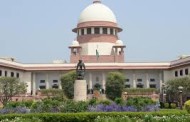

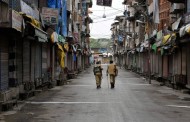
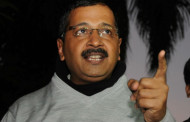

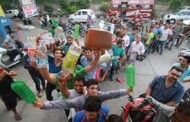
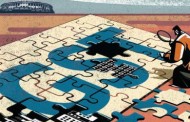
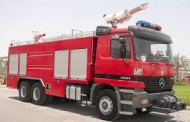





south Delhi area and later referred to Apollo Hospital. He died of dengue shock syndrome,” a hospital source said.
12-year-old Muskan, a resident of Shaheen Bagh here, had died on July 29, while Deepak (19), from Jaunpur in Uttar Pradesh, succumbed to the disease on July 27, both at Safdarjung Hospital.
The civic bodies, however, have acknowledged only these two death cases so far.
Okhla MLA Amanatullah Khan’s sister-in-law had also died of dengue on August 12 at Apollo Hospital.
This year, dengue cases were reported rather early. The disease had claimed its first victim on July 21 when a girl from Jafrabad in northeast Delhi died at Lok Nayak Jai Prakash (LNJP) Hospital.
Doctors have advised people to keep themselves adequately hydrated and not resort to self-medication, and also to go for blood test before rushing to get admitted in hospital.
“Only in severe cases should they go for hospitalisation.
Also, it is extremely important to note that platelet transfusion is only needed in dengue cases where the platelet count is less than 10,000 and there is active bleeding.
“Unnecessary platelet count can cause more harm than good.
Adequate hydration is the best management approach to dengue while monitoring crucial signs,” said Dr K K Aggarwal, Secretary General, Indian Medical Association.
Last year, the city saw a staggering 15,867 dengue cases — the worst in 20 years — with the disease claiming 60 lives, as per municipal reports.
In 2015, only six cases were reported in June, while 36 were registered in July.
In 1996, a severe outbreak of dengue had occurred in Delhi when about 10,252 cases and 423 deaths were reported.